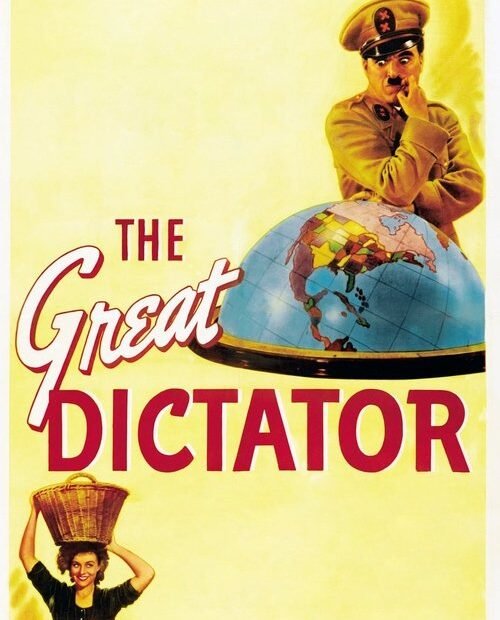The Great Dictator: A Hilariously Hairy Tale of Identity and Irony
Picture this: a Jewish barber with a heart of gold and a face that could make you question the very fabric of reality. After serving in World War I, our unsuspecting hero finds himself in a hospital, blissfully unaware that a certain mustachioed maniac named Hynkel (who looks suspiciously like him) is busy turning the world upside down. Talk about a bad hair day!
Fast forward a few years, and our barber emerges from the hospital, ready to get back to his old life. But lo and behold, his quaint little neighborhood has morphed into a dystopian nightmare straight out of a surrealist painting. The streets are filled with marching soldiers, and everyone seems to be sporting a very questionable haircut. It’s like a bad episode of a makeover show gone wrong!
Our barber, played by the masterful Charlie Chaplin, soon realizes that his doppelgänger is not just a fashion faux pas but a full-blown dictator! Hynkel is busy oppressing everyone and their grandma, and here’s our barber, just trying to figure out how to cut hair without giving customers a nervous breakdown. But fear not, for this film is not just a tale of despair; it’s a laugh riot wrapped in a poignant message.
Enter the lovely Hannah, a spirited young woman who’s trying to survive in this oppressive regime. She’s got spunk, she’s got style, and she’s got a knack for getting into trouble. Together, she and our barber form an unlikely duo, like Batman and Robin, but with less spandex and more existential dread. They hatch a plan to stand up against Hynkel, which involves a lot of running, hiding, and, of course, some slapstick humor that would make even the most serious of clowns chuckle.
As the plot thickens like a Texas chili, we dive into a whirlwind of mistaken identities and ridiculous antics. At one point, our barber finds himself giving a speech in front of a massive crowd, mistaking it for a barber shop convention. Spoiler alert: it’s not. Instead, he unleashes a heartfelt plea for peace and unity that somehow resonates with the masses, leaving Hynkel flabbergasted and his mustache twitching in disbelief.
In a climactic showdown of absurdity, the barber confronts Hynkel, leading to a scene that’s equal parts hilarious and heart-wrenching. The poignant message of the film shines through as Chaplin’s character urges the audience to fight against tyranny, embrace compassion, and, for the love of all that’s holy, get a decent haircut. Seriously, who knew a comedy could pack such a punch?
By the end, you’re left wondering how a film made in 1940 can still resonate today, reminding us that laughter is indeed the best weapon against oppression. So grab your nearest barber and a sidekick who can keep up with your crazy ideas, because if a Jewish barber can stand up to a dictator, then maybe we can all fight our own battles—preferably with a little more style and a lot less mustache.
In conclusion, The Great Dictator is a timeless masterpiece that combines humor, heartbreak, and a hefty dose of surrealism. It’s a reminder that beneath the layers of absurdity lies a powerful message: we’re all in this together, and sometimes the best way to fight back is with a well-timed joke and a killer haircut!
